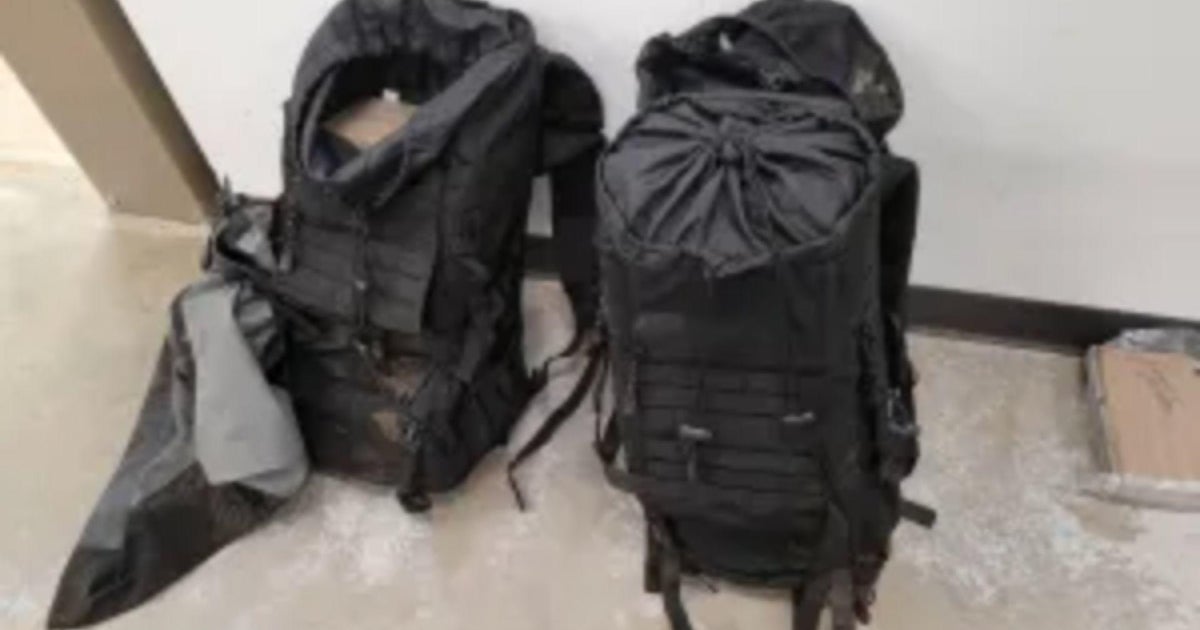Court shows jail videos Dylann Roof didn't want released
CHARLESTON, S.C. -- A week before the sentencing phase of his trial, Dylann Roof got a visit in jail from his mother, who pleaded with him to reconsider his decision to act as his own lawyer in the fatal shootings of nine black worshippers at a South Carolina church.
But Roof was more concerned with the clothes he would wear to court. Since he could not have his first choice of his comfortable jail jumpsuit, he wanted two-tone gray pants, inseam 29, not 30, so they wouldn't hang over his shoes. He also wanted thicker sweaters. And he wanted his lawyers at the defense table for one reason.
"So I can abuse them," Roof said with an awkward laugh in one of four jailhouse videos released Tuesday by federal court officials.
In the nearly three hours of footage from family visits, Roof laughed at his dad's jokes, tried to trick his mom into thinking he had tinsel and a stocking in his cell for Christmas and told his half-sister he would invite her to his execution. He also upbraided his mom for feeding his cats too many treats and told his dad not to believe all of Donald Trump's promises now that he's president.
He even cried, convinced he had syphilis despite extensive examinations by doctors. Recently released court papers indicate that the 23-year-old told a psychologist that he never had a girlfriend.
On the videos, Roof did not mention anything about the nine people he killed in the 2015 massacre at Emanuel AME church in Charleston, where he fired 77 shots in the fellowship hall after spending 45 minutes in a Bible study.
He was sentenced to death in January on federal hate-crime and obstruction-of-religion charges. He did not want the recordings made public and fired his lawyers to prevent them from presenting the videos to a jury as part of his defense.
The conversations took place at the Charleston County jail on a video conferencing system similar to a Skype call. Roof could see his family and they could see him on small screens. They spoke into a phone receiver.
In the footage, Roof never mentioned any fear or anxiety about death row. Instead, he raved about the grits for breakfast and the chicken breast for dinner and complained that he got the high-protein tray for dinner and had to eat meatballs for 40 days in a row.
The tapes were presented by Roof's attorneys in a closed hearing as they unsuccessfully argued that he was not competent to stand trial.
U.S. District Judge Richard Gergel ruled they could be watched at the courthouse in Charleston, but he did not allow copies to be made for viewing outside the courthouse.
The videos reinforced Roof's quirks - his abrupt changes in conversation topics, jokes made with no changes in tone or facial expression to indicate he was kidding and his insistence there was something physically wrong with him even after doctors ruled it out.
The videos also show Roof's struggles with empathy.
During a visit just before his trial began, Roof told his father he was thinking about doing something even worse than the church massacre. His dad, who mostly joked about the government wasting money and the media coverage of the case, teared up.
"Please don't do anything stupid. You've already done enough," he said, walking away from the video camera. He stepped back, adding "You know that everything you've done is a reflection on us as a family. Don't be a (expletive) dumbass."
Psychiatrist Donna Maddox, in one of four evaluations of Roof, noted that he turned to the internet to solve his problems and shape his worldview. In his confession to the FBI, Roof said typing "black on white crime" into Google changed his life, leading within 18 months to the massacre.
Roof shared his racist ideas at first with friends and family, but quickly learned to keep them to himself because of negative reactions, Maddox said.
All four people who evaluated Roof said he could never give a good answer to why he felt killing black people in a church was necessary. Roof's lawyers spoke to black inmates, who said he was always polite to them. In his FBI confession, he gave specific details about the gun and the room but could not recall anything about the people he killed beyond their race.
Roof smiled during one visit when his dad told him that Roof's suspicions that a family friend had an autism-related disorder were correct. "Who could not have known it if you've seen him? He's weird," Roof said.
But Roof told a judge during his competency hearing he would rather die by lethal injection than let his lawyers tell the jury he had been diagnosed behind bars with autism.
"I don't have autism. Nerds and losers have autism," Roof told one of his examiners.
Most of the videos show Roof's parents and then-16-year-old sister trying to make small talk.
Roof asked his sister what she wanted to do as a career, scoffing at the unoriginality of her dream to be a nurse. He told her that he no longer had to worry about making a living because he was in prison.
Roof's sister smiled back. "You're a professional dumbass," she said.




